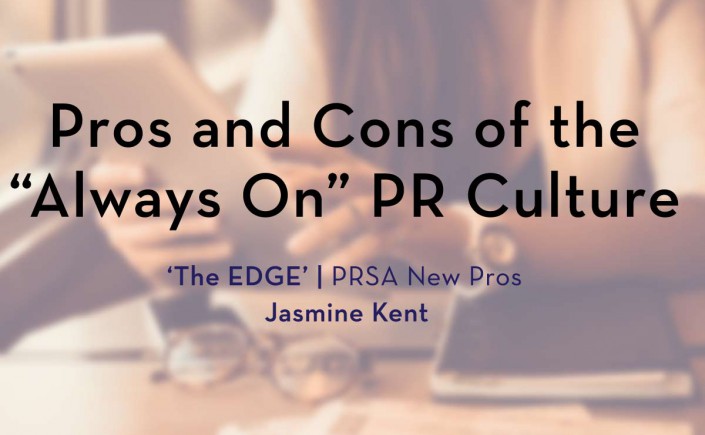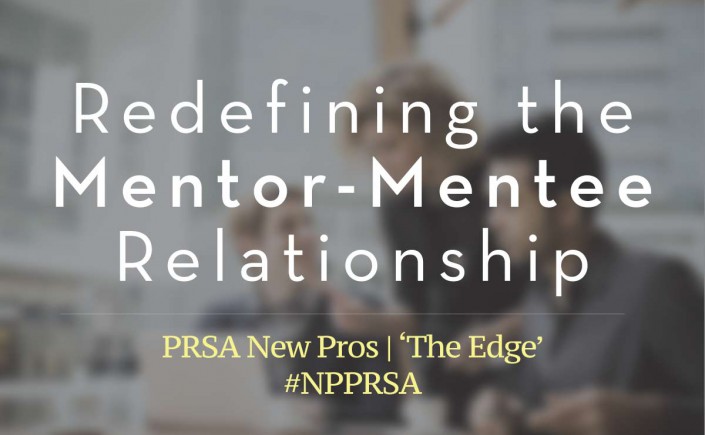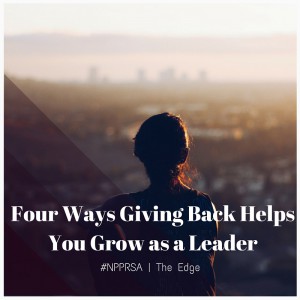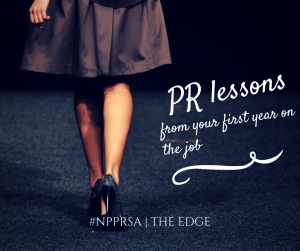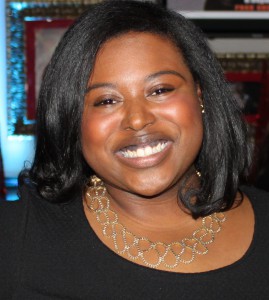When most of us think of a mentor-mentee relationship, images of a seasoned expert offering sage wisdom and experiences to an aspiring pro probably come to mind. We tend to think that a mentor needs to have many years of experience and the mentor-mentee is an exclusive, hard-to-find relationship that helps to guide the mentee’s career.
Some of these assumptions may be partly true, but it’s past time that we redefine our definition of what a mentor-mentee relationship should look like. A mentorship doesn’t typically begin by seeking someone out and asking “Will you be my mentor?” It’s usually a relationship that evolves from a previous connection – a professor, a supervisor, a leader in your PRSA chapter, a friend of your family, etc. – to help guide you through your career.
What we get wrong about a mentor is that it has to be someone with a lot of experience, that we only need one and that a mentor will be able to guide our careers to perfection instantly and without much input from us. A mentor isn’t a fairy godmother for your career anymore than you’re a pumpkin who dreams of being a carriage. Dispelling some of these incorrect notions and understanding a mentorship needs can make you both a fantastic mentee and a phenomenal mentor, no matter where you are in your career.
A good mentee…
… knows his or her goals.
A mentorship is all about guidance and no one can guide you if you don’t know where you want to go. It’s important to at least have a general idea of what your goals are and where you’d like to be, because otherwise, you and your mentor will just keep going in circles with no real benefit.
…asks for what he or she wants.
Are you looking for advice? Assistance making some connections? Help fine-tuning your resume? An “in” to agency life? You have to be able to ask for what you need. A mentor can provide all kinds of help, but only if they know what will benefit you.
…is gracious.
There’s a difference between using someone for his or her connections and building a relationship that you can benefit from. It’s gratitude. Be gracious about any and every bit of assistance and help that your mentor provides. Beyond just saying thank you, you can send a handwritten note, a little gift, anything to show that you appreciate his or her time and help. The best thank you that you can give, though, is to follow through with their advice or introductions and building something better for yourself.
…knows that it takes a village.
There isn’t one person that will be able to help you with all the career questions you’re bound to have. It’s ok, actually essential, to have more than one person to turn to for advice. Having mentors at varying levels of their careers, with different backgrounds and experiences can help you get a better picture of the professional landscape as you navigate it and pave your own way.
…takes the lead.
If you’re seeking a mentor, you’re probably looking for someone currently working, with good experience and active in your professional interests. So they’re probably going to be busy, too. Take the lead by knowing what you want to know, scheduling meeting time ahead of time and meet them where they are. Don’t be afraid to follow up and nudge a bit if your mentor doesn’t respond within a day or two.
A good mentor…
…gets to know his or her mentee.
A mentorship is a relationship just like any other. It takes nurturing and connecting a multiple levels to keep it alive and beneficial. Learn other things about your mentee – interests, hobbies, family, etc. – and build a connection beyond professional interests.
…is available.
It’s understandable that you’re busy, but if you’re committed to being a mentor, you have to make time for it like anything else. It’s important to be available to your mentee, whether that’s by email, phone, Skype, social media or in person. You don’t have to be available 24/7 or at a moment’s notice, but you should have consistent communication with your mentee.
…isn’t afraid to share.
Sharing your mistakes and missteps is just as important as sharing your nuggets of wisdom and best practices. Knowing that everyone makes mistakes in their career and accepting that is an important part of professional development.
…knows age is just a number.
You can be a good mentor at any age and any career level. A mentorship should be focused around learning and growing together. As you progress in your career, you’ll have different experiences and advice to share. New pros can be just as good a mentor for aspiring young professionals as any master practitioner.
…is open to dialogue.
There’s nothing worse than trying to talk to someone who is stuck in their ways and unable to entertain any other viewpoints. No matter where you are in your career, it’s important to keep an open mind to new ideas and methods, no matter how big or small, or who they’re coming from.
The best mentors and mentees know…
…that mentorship is a two-way street.
Like any other relationship, a mentorship should be beneficial for everyone involved. Mentors can learn just as much from their mentees as they can teach them. Investing time in your mentorship, no matter which role you’re fulfilling, is a worthwhile contribution to your professional development.
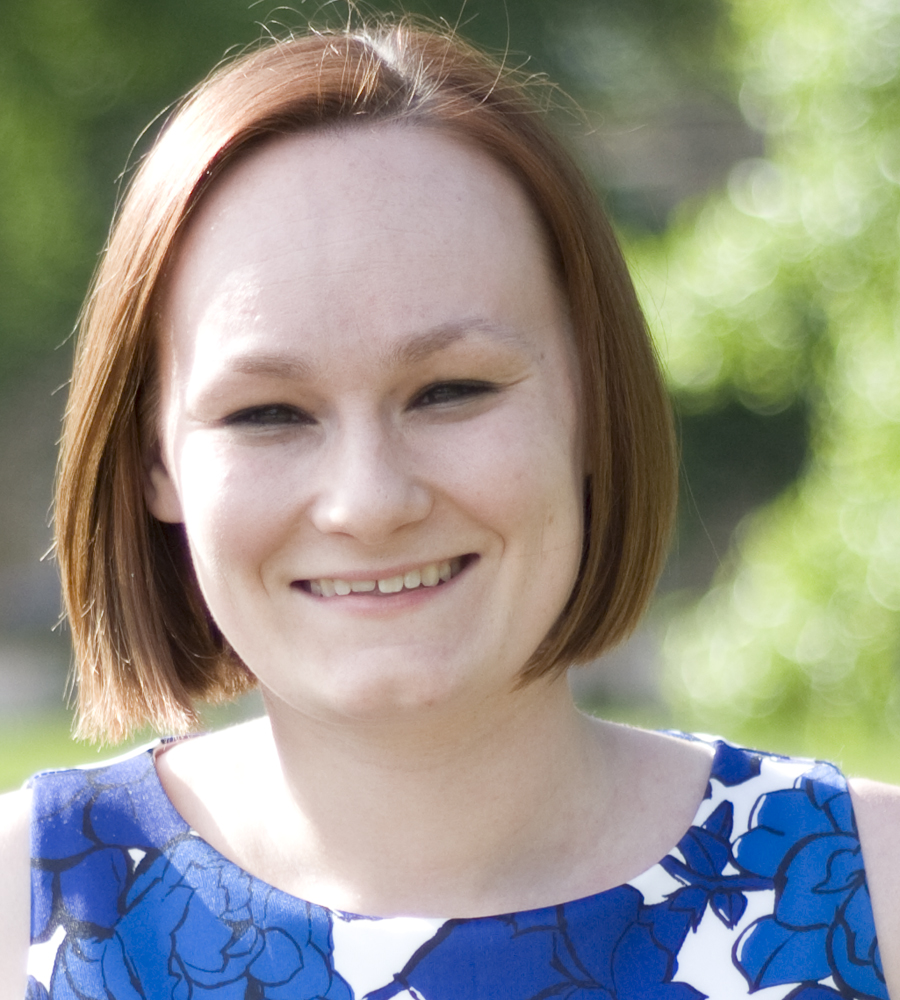
Robyn Rudish-Laning is a member of South Carolina’s PRSA chapter and is communications coordinator for the South Carolina Council on Competitiveness. Robyn is also a member of the New Professionals executive committee. She is a graduate of Duquesne University and is currently located in Columbia, SC. You can connect with her on LinkedIn or Twitter or read her blog here.
 Jasmine L. Kent, a member of PRSA-LA, is a fan of all things food and beverage, pop culture, and media. Combining all three passions, Jasmine builds community through engaging online marketing and dynamic events as a communications professional in Los Angeles, CA. Keep up with her on Twitter at @LoveJasPR or visit LoveJasPR.com.
Jasmine L. Kent, a member of PRSA-LA, is a fan of all things food and beverage, pop culture, and media. Combining all three passions, Jasmine builds community through engaging online marketing and dynamic events as a communications professional in Los Angeles, CA. Keep up with her on Twitter at @LoveJasPR or visit LoveJasPR.com. 
